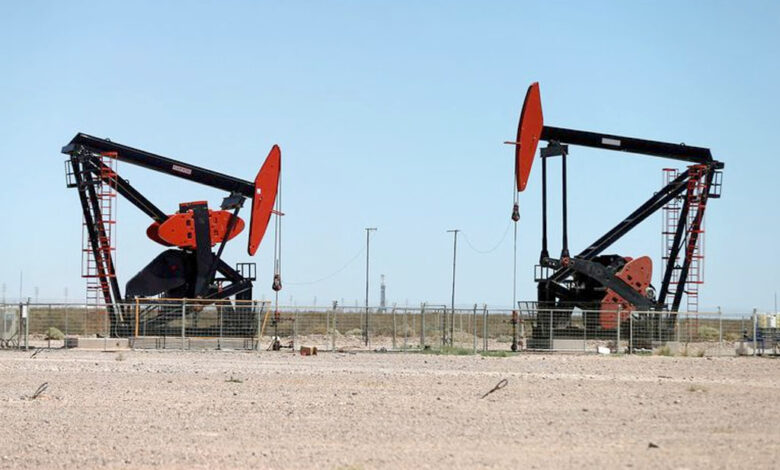Stable Oil Markets Despite Banking Crisis and Russia Weighing on Investor Sentiment

On Monday, oil prices stabilised in Asian trade as investors turned to broader financial markets for cues. Brent crude futures remained unchanged at $74.99 a barrel at 0357 GMT, while U.S. West Texas Intermediate crude rose by 3 cents to $69.29 a barrel, after hitting a high of $69.92 earlier in the session. Brent saw a 2.8% rise last week, while WTI bounced back by 3.8%, with the easing of jitters in the banking sector. According to Vandana Hari, founder of oil market analysis provider Vanda Insights, oil markets are closely watching financial market sentiment, while oil fundamentals remain sidelined. She added that most price action in Brent and WTI futures is expected to occur during the Europe and U.S. trading hours, marked by plenty of intraday volatility. However, she also stated that a strong rebound is unlikely until the banking crisis is fully dissipated, which could take days or even weeks.
The dollar, which has a significant impact on oil prices, was firm on Monday, as investors assessed regulators’ moves to rein in jitters in the global banking system. A stronger dollar makes dollar-denominated commodities more expensive for holders of other currencies, which tends to weigh on demand for oil. Meanwhile, geopolitical tensions in Europe escalated over the weekend, as Russian President Vladimir Putin announced his plans to station tactical nuclear weapons in Belarus. NATO criticised Putin on Sunday for what it called his “dangerous and irresponsible” nuclear rhetoric. These developments kept a lid on oil’s gains.
Russia’s Deputy Prime Minister Alexander Novak said on Friday that Moscow was close to achieving its target of cutting crude output by 500,000 barrels per day (bpd) to around 9.5 million bpd. Despite lowering output, Russia is expected to maintain crude oil exports by cutting refinery output in April, according to data from industry sources and Reuters calculations. However, exports of Russian oil products have been more affected than crude exports by a recent European Union embargo, with tonnes of diesel stuck on ships awaiting buyers. Russian crude inventories have been rising since September last year, and the country would likely want to avoid further stockbuilds during refinery maintenance season from March to June. Analysts at FGE noted that if Russia wants to draw down the inventories it has built, output cuts may need to be extended beyond June.
In France, industrial action is disrupting refineries, reducing crude demand and fuel production. Additionally, investors are watching out for China’s manufacturing and services purchasing managers’ indexes (PMIs) to be released later this week. In the U.S., oil rigs rose by four to 593 last week, up for the first time in six weeks, while gas rigs held steady at 162, according to energy services firm Baker Hughes Co (BKR.O) report on Friday.





